Heribert Vollmer
Graph Neural Networks and Arithmetic Circuits
Feb 27, 2024
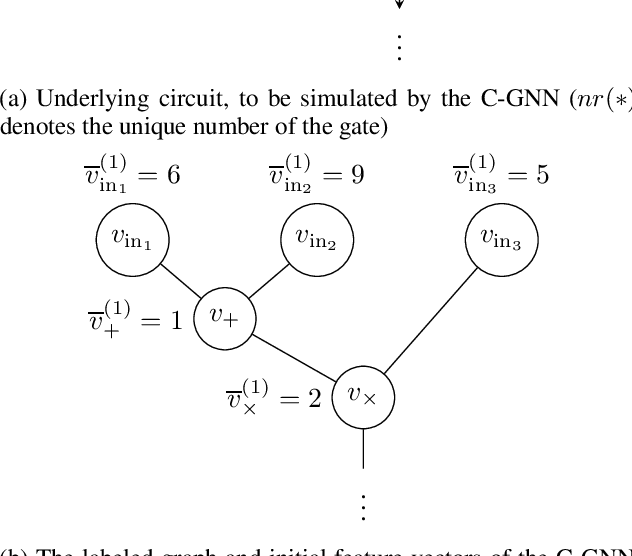

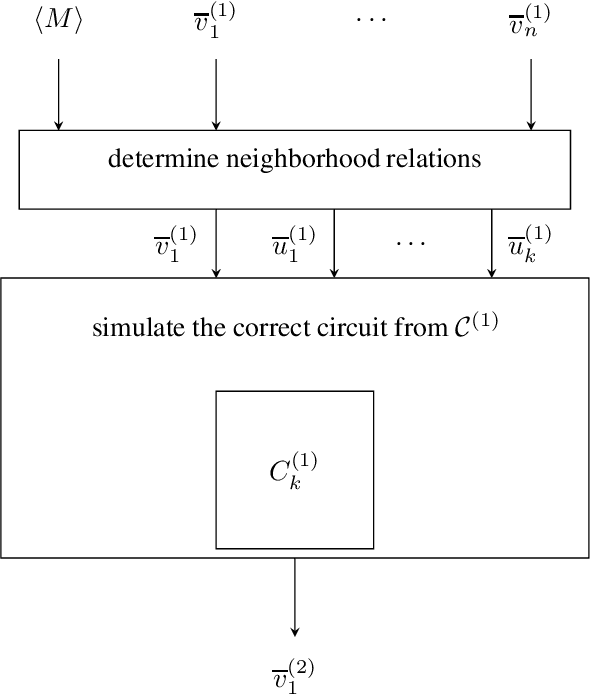
Abstract:We characterize the computational power of neural networks that follow the graph neural network (GNN) architecture, not restricted to aggregate-combine GNNs or other particular types. We establish an exact correspondence between the expressivity of GNNs using diverse activation functions and arithmetic circuits over real numbers. In our results the activation function of the network becomes a gate type in the circuit. Our result holds for families of constant depth circuits and networks, both uniformly and non-uniformly, for all common activation functions.
Enumeration Classes Defined by Circuits
May 01, 2022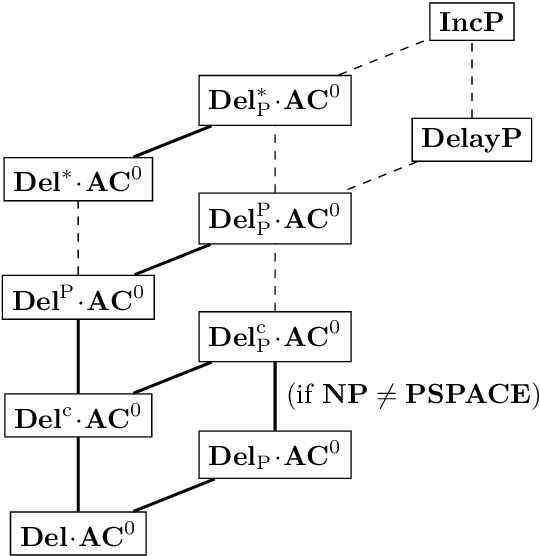
Abstract:We refine the complexity landscape for enumeration problems by introducing very low classes defined by using Boolean circuits as enumerators. We locate well-known enumeration problems, e.g., from graph theory, Gray code enumeration, and propositional satisfiability in our classes. In this way we obtain a framework to distinguish between the complexity of different problems known to be in $\mathbf{DelayP}$, for which a formal way of comparison was not possible to this day.
On the Parameterized Complexity of Default Logic and Autoepistemic Logic
Oct 06, 2011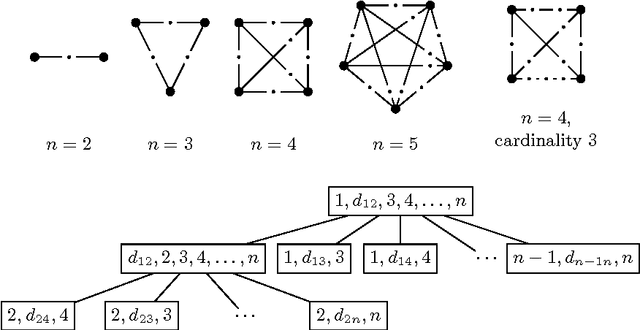
Abstract:We investigate the application of Courcelle's Theorem and the logspace version of Elberfeld etal. in the context of the implication problem for propositional sets of formulae, the extension existence problem for default logic, as well as the expansion existence problem for autoepistemic logic and obtain fixed-parameter time and space efficient algorithms for these problems. On the other hand, we exhibit, for each of the above problems, families of instances of a very simple structure that, for a wide range of different parameterizations, do not have efficient fixed-parameter algorithms (even in the sense of the large class XPnu), unless P=NP.
Complexity of Non-Monotonic Logics
Sep 10, 2010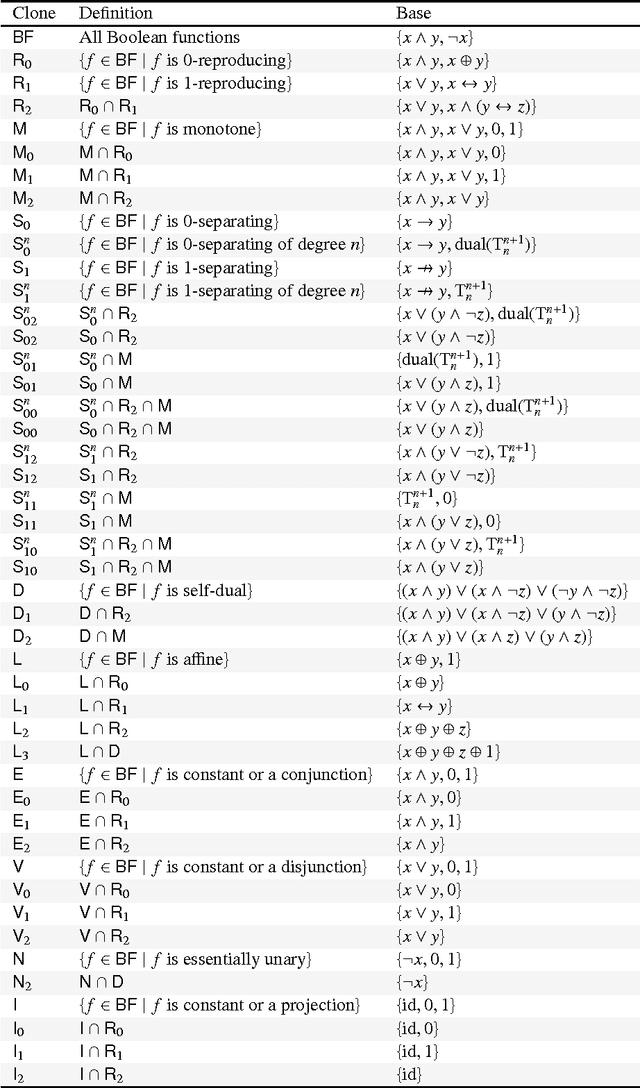
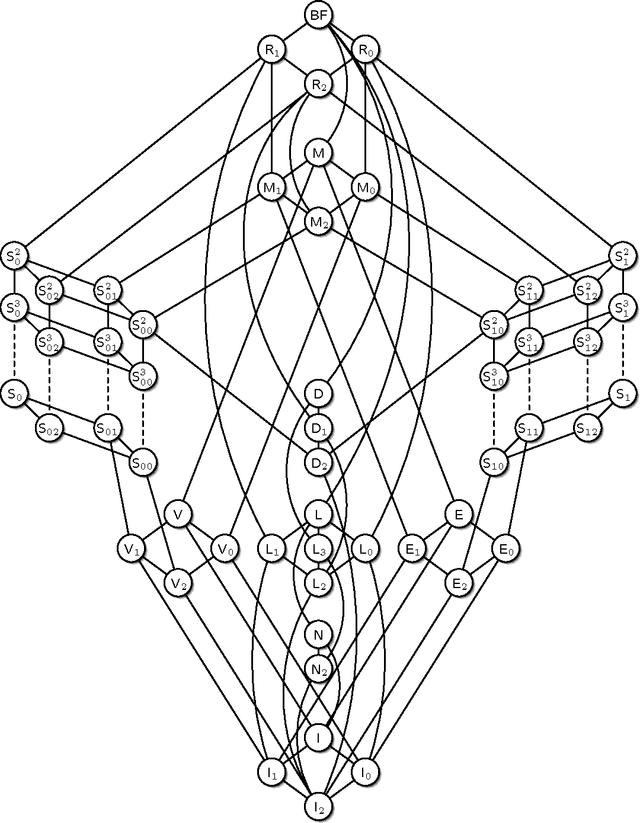
Abstract:Over the past few decades, non-monotonic reasoning has developed to be one of the most important topics in computational logic and artificial intelligence. Different ways to introduce non-monotonic aspects to classical logic have been considered, e.g., extension with default rules, extension with modal belief operators, or modification of the semantics. In this survey we consider a logical formalism from each of the above possibilities, namely Reiter's default logic, Moore's autoepistemic logic and McCarthy's circumscription. Additionally, we consider abduction, where one is not interested in inferences from a given knowledge base but in computing possible explanations for an observation with respect to a given knowledge base. Complexity results for different reasoning tasks for propositional variants of these logics have been studied already in the nineties. In recent years, however, a renewed interest in complexity issues can be observed. One current focal approach is to consider parameterized problems and identify reasonable parameters that allow for FPT algorithms. In another approach, the emphasis lies on identifying fragments, i.e., restriction of the logical language, that allow more efficient algorithms for the most important reasoning tasks. In this survey we focus on this second aspect. We describe complexity results for fragments of logical languages obtained by either restricting the allowed set of operators (e.g., forbidding negations one might consider only monotone formulae) or by considering only formulae in conjunctive normal form but with generalized clause types. The algorithmic problems we consider are suitable variants of satisfiability and implication in each of the logics, but also counting problems, where one is not only interested in the existence of certain objects (e.g., models of a formula) but asks for their number.
 Add to Chrome
Add to Chrome Add to Firefox
Add to Firefox Add to Edge
Add to Edge